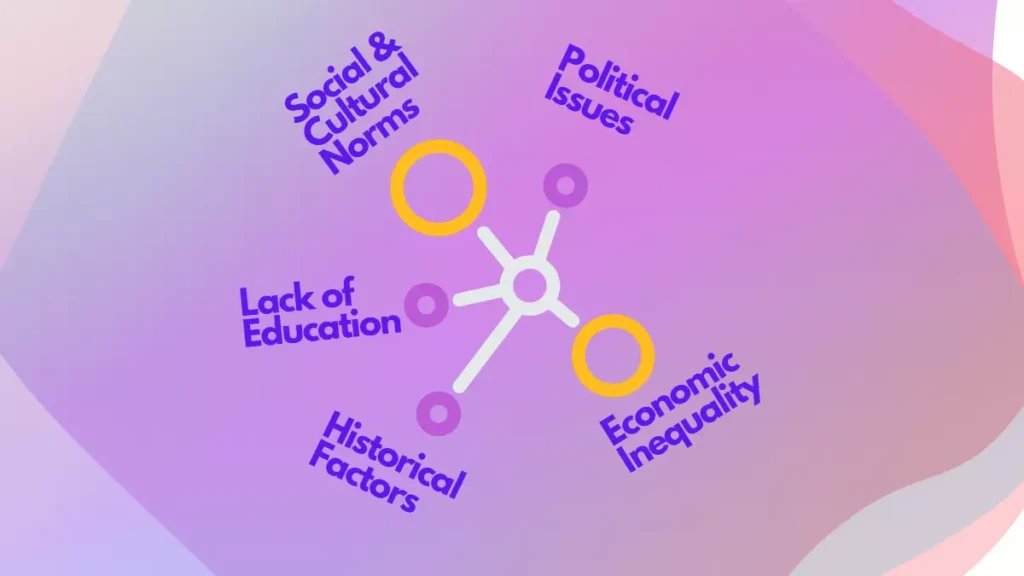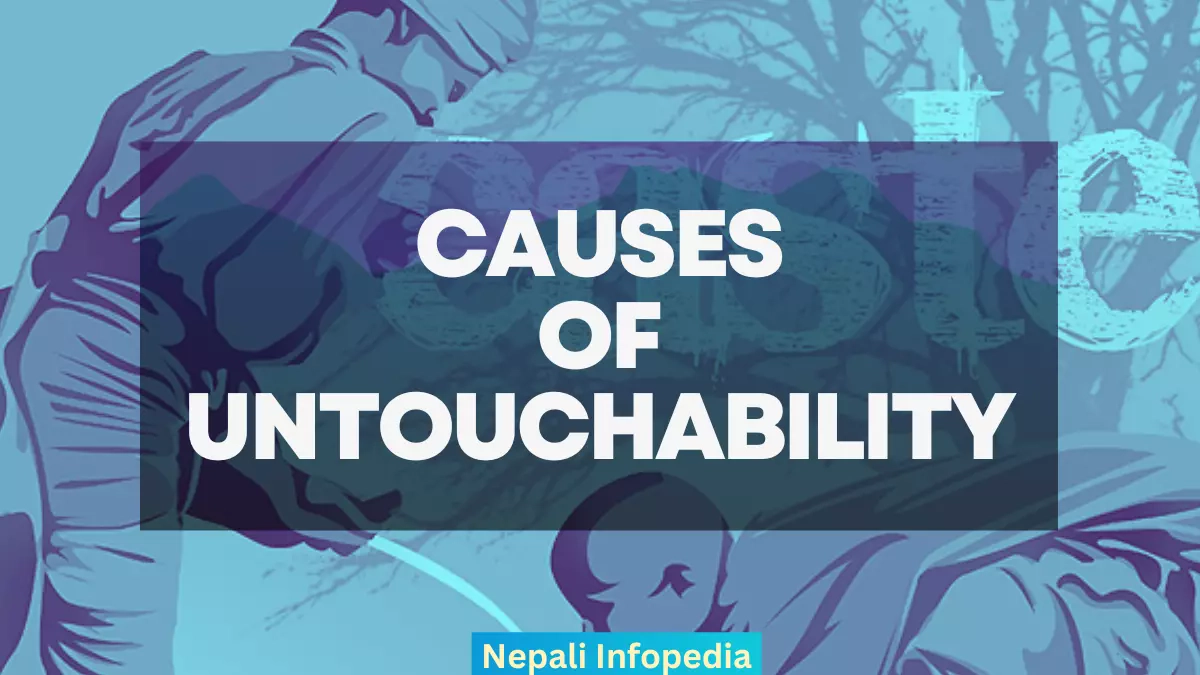Untouchability, also known as caste-based discrimination, is a form of social discrimination that has been practiced in Nepal for many centuries. It is based on the belief that certain castes, or social groups, are superior to others and that contact with people from lower castes is polluting or impure. This belief is rooted in Hinduism and is reinforced through cultural practices and social norms.
Economic inequality, political and legal issues, lack of education and awareness, historical factors, and resistance to change are among the factors that contribute to the persistence of untouchability in Nepal. Here we are going to take a deep look in major causes of untouchability in nepal.

Causes of untouchability in Nepal
The belief of untouchabiulity is rooted in Hinduism, which has a complex caste system that divides people into four main castes: Brahmins, Kshatriyas, Vaishyas, and Sudras. There are several factors that contribute to the persistence of untouchability in Nepal:
1. Social and cultural norms
Many people in Nepal have grown up with the belief that certain castes are inferior and that it is acceptable to discriminate against them. This belief is reinforced through cultural practices, such as the segregation of certain castes in temples and the prohibition of intermarriage between castes.
2. Economic inequality
In Nepal, people from lower castes often have limited access to education, employment, and other resources, which perpetuates a cycle of poverty and disadvantage. This can make it difficult for them to rise up in society and escape the stigma of untouchability.
3. Political and legal issues
The caste system is not recognized by the Nepali government, and disc rimination based on caste is prohibited by law. However, enforcement of these laws is often weak, and there are few consequences for those who discriminate against people from lower castes.
Read Similar : Untouchability Effects and Solution
4. Lack of education and awareness
Many people in Nepal are unaware of the harmful effects of caste-based discrimination and the laws that are in place to protect against it. This lack of awareness makes it difficult to combat untouchability and promote social equality.
5. Historical factors
The caste system in Nepal has a long history and has been deeply ingrained in the country’s social, cultural, and economic fabric. It is difficult to address this issue without acknowledging and understanding its historical roots.
6. Intergenerational transmission
Many people in Nepal are born into a particular caste and are expected to adhere to the associated customs, beliefs, and practices. This means that untouchability can be passed down from one generation to the next, making it difficult to break the cycle.
7. Resistance to change
Some people may be resistant to efforts to promote social equality and combat untouchability. This resistance can come from those who benefit from the caste system or those who are simply resistant to change.
8. Complexity of the issue
Caste-based discrimination is a complex and multifaceted issue that cannot be addressed by a single solution. It requires a concerted effort by the government, civil society organizations, and communities to promote social equality and combat discrimination.
In conclusion, untouchability is a complex and multifaceted issue that has a long history in Nepal and is deeply ingrained in the country’s social, cultural, and economic fabric. It is based on the belief that certain castes are superior to others and that contact with people from lower castes is polluting or impure. This belief is reinforced through cultural practices and social norms, and is perpetuated by economic inequality, political and legal issues, lack of education and awareness, historical factors, and resistance to change. To address this issue and promote social equality in Nepal, it is important to recognize the rights of all individuals and work towards creating a more inclusive and equitable society.

Sir how we solve the of untouchability